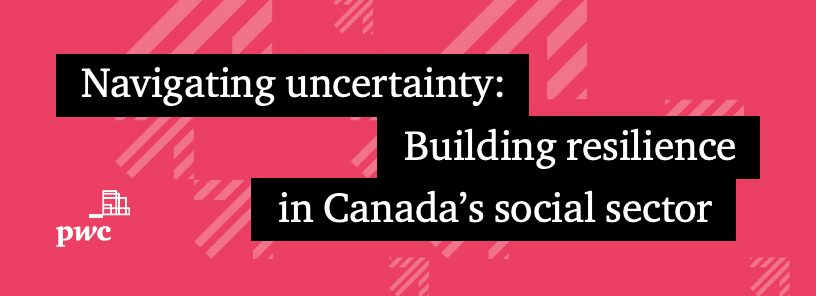- Home
- About Us
- The Team / Contact Us
- Books and Resources
- Privacy Policy
- Nonprofit Employer of Choice Award

 Canada’s social sector has been disproportionately disrupted by the financial, societal and health-related impacts of the pandemic and is experiencing an unprecedented rate of change.
Canada’s social sector has been disproportionately disrupted by the financial, societal and health-related impacts of the pandemic and is experiencing an unprecedented rate of change.
Imagine Canada—an industry body representing Canada’s non-profits—has suggested that, in a worstcase scenario involving six months of enforced isolation and a more severe economic downturn, the sector could lose up to CA$15.6 billion in revenue and lay off approximately 194,000 employees—twice as severe as the overarching impacts of the 2008/2009 recession.
Leaders of non-profit organizations, charities and other social purpose entities that comprise the social sector are working extremely hard, yet their efforts often go unnoticed. Their organizations have faced significant revenue declines after the large-scale cancellation of fundraising events, compounded by the challenges related to essential service delivery for those most in need. Volunteer availability has been dramatically reduced due to social distancing, further straining operating models and requiring new approaches. Social sector leaders are at high risk of burnout at a time when society needs them most.
PwC has launched a new report - Navigating Uncertainty: Building Resilience in Canada's Social Sector. Key insights include:
While these combined impacts are significant, the current environment also presents the social sector with new opportunities to embrace change. Our society is on the edge of a new world of work—one brimming with ways to reimagine how we use technology to collaborate, innovate and deliver differently. Organizations that equip their workforce with the necessary tools and skills needed for the future of work will be better positioned to manage adversity and build resilience.
The dedicated leaders in Canada’s social sector have always sought new approaches to fulfill their social, environmental and cultural missions with a lens to helping address issues like structural and systemic inequity. Their hard work and dedication are driving a renewed interest in finding sustainable ways to operate in a virtual world and navigate uncertainty to ensure no Canadian is left behind in a digital divide.
To read the full report, click here